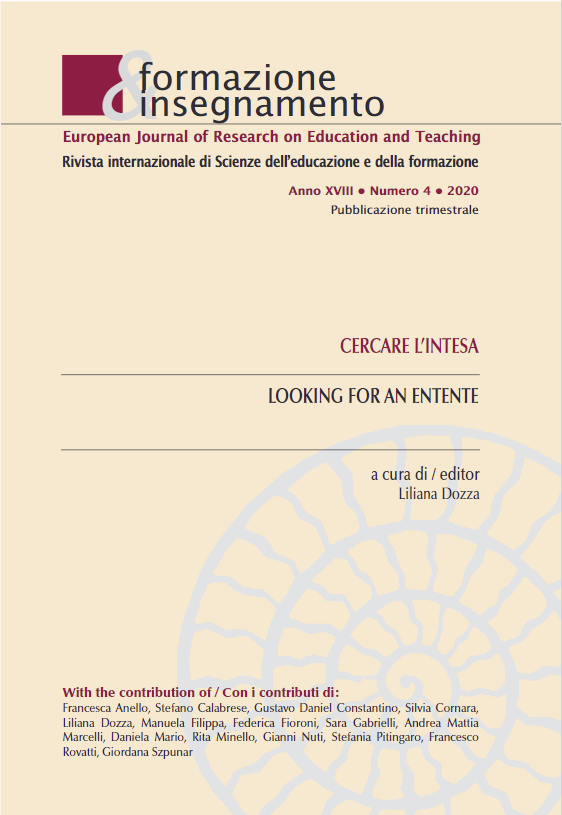Developmental Niche Construction in Education Sciences: Epistemological Considerations and Anthropological Evidence on its Outcomes for Community Education
DOI:
https://doi.org/10.7346/-fei-XVIII-04-20_01Keywords:
Niche Construction Theory, Developmental Niche Construction, Epistemology of Education, Extended Mind, Community EducationAbstract
This paper is divided into five parts. Section 1 introduces niche construction theory (NCT) as a viable epistemic tool to cradle education within evolutionary and ecological accounts, inasmuch the latter ones are better suited to tackle the environmental issues recently identified by some key Italian pedagogists. Section 2 outlines NCT and illustrates how developmental niche construction (DNC) – one of its derivative concepts – plays a pivotal role in the evolutionary account of education. Section 3 identifies cognitive science as a further element to be taken into account: prima facie, cognitive research strategies seem to be at odds with an NCT-laden version of education of learning. Thus, this paper endeavours to show that, although a DNC-driven view of education calls for a broader rethinking of the explanatory role of low-level cognitive processes (Section 3.1), cognitive science remains a paramount player in educational practice – provided the extended mind paradigm is embraced (Section 3.2). Once proven DNC’s liaison with cogni-tive science is ultimately non reductionist, Section 4 explores two cases of how DNC-informed NCT influences teaching: firstly, by identifying educators (teachers) as niche-constructors (Section 4.1); secondly, by acknowledging the ability to construct niches is one of the most prominent educational goal learning communities can achieve in order to enhance their fitness. Finally, Section 5 sums up the conclusions.
Downloads
Published
How to Cite
Issue
Section
License
Copyright (c) 2020 Andrea Mattia Marcelli

This work is licensed under a Creative Commons Attribution 4.0 International License.
Formazione & insegnamento is distributed under Attribution 4.0 International (CC BY 4.0).
For further details, please refer to our Repository & Archiving Policy, as well as our Copyright & Licensing Terms.





